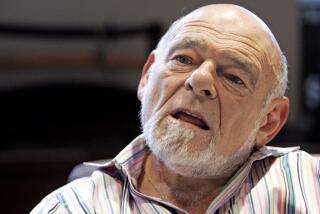Tribune bankruptcy odyssey takes a new twist
- Share via
When U.S. Bankruptcy Judge Kevin Gross stepped up to mediate a settlement in Tribune Co.’s fractious Chapter 11 case earlier this month, most observers gave him slim odds of success.
Tribune and its creditors had already spent nearly two years haggling and filing legal briefs in the case, and the only thing the estate had to show for it was more than $180 million in professional fees through August.
Since then, the odds of an easy settlement have probably gotten worse, according to people familiar with the situation who asked for anonymity because they aren’t authorized to speak publicly.
If anything, these people say, the sides were growing further apart on the eve of mediation talks, which begin Sunday in Delaware. What’s more, negotiations are likely to further be complicated by the emergence of a pugnacious New York hedge fund called Aurelius Capital Management as a major player.
One measure of the diminished hopes for a speedy resolution is the fading urgency among senior creditors to round up new management for Tribune, which owns the Los Angeles Times, the Chicago Tribune, KTLA-TV Channel 5 and other media properties.
A month ago, creditors led by hedge fund Angelo, Gordon & Co. had been talking with former Walt Disney Co. Chief Executive Michael Eisner and Comcast Corp. executive Jeff Shell about running the new Tribune as chairman and CEO, respectively. But those talks have withered, insiders said, amid the uncertainty surrounding the company’s future.
A major factor driving that uncertainty is the increased presence of Aurelius, which is well known in the bankruptcy world for its litigious, fight-for-every-dime style of money-making. The firm has been steadily building a position in a junior class of Tribune bonds. But a little over a week ago, people close to the matter said, it bought out a large portion of a stake held by Centerbridge Partners, another distressed-investment hedge fund that until then had been the most powerful junior creditor in the case.
Aurelius tends to buy into the unsecured junior bonds of a foundering company at cents on the dollar and then unleash an aggressive legal strategy to boost the returns those bonds get as the case is resolved. In that respect, it is not so different from the many other distressed-debt hedge funds that have swept into Tribune securities since the Chicago-based media company filed for Chapter 11 protection in December 2008. What sets Aurelius apart, observers say, is its stubborn willingness to wage battle.
“We can assume that any [mediation] settlement will not be acceptable to Aurelius,” said one source close to the talks.
Centerbridge is hardly a pushover. It got into the case much earlier than Aurelius and was the chief agitator for pressing legal action against the senior lenders and others who participated in Chicago real estate magnate Sam Zell’s 2007 leveraged buyout of Tribune, claims that now lie at the center of the case.
But last spring Centerbridge signaled its willingness to compromise, joining a settlement of the buyout-related charges brokered by Tribune management, a deal that collapsed in August. Few expect Aurelius to be as pliant.
One reason for pessimism is the apparent economics of Aurelius’ position. The firm won’t comment but it is clear from the timing of the Centerbridge purchase that it will have to extract a new settlement price well above the failed one if it is to profit on a large piece of its investment.
mdoneal@tribune.com
More to Read
The biggest entertainment stories
Get our big stories about Hollywood, film, television, music, arts, culture and more right in your inbox as soon as they publish.
You may occasionally receive promotional content from the Los Angeles Times.










